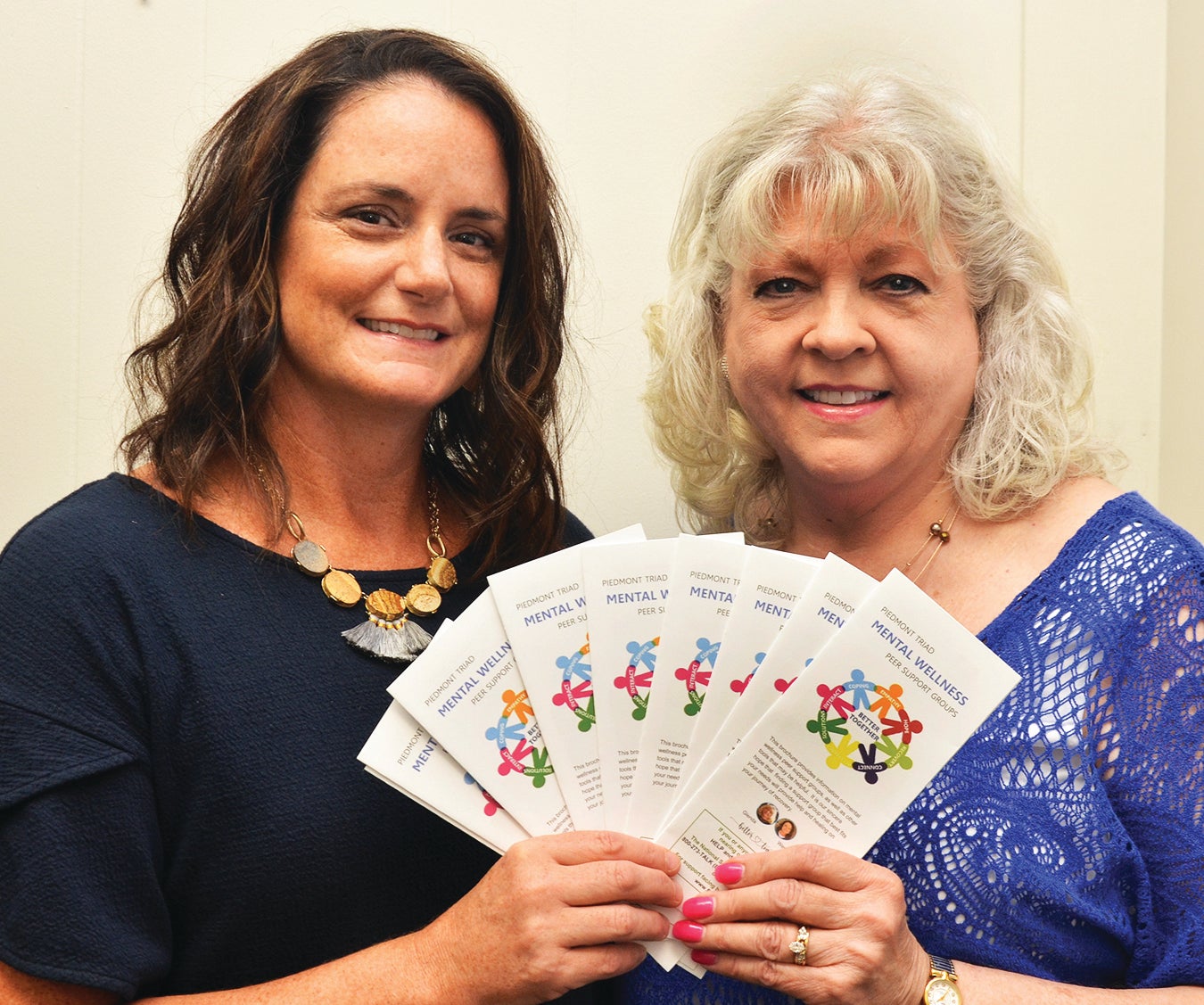A mental wellness journey: Women hope to help end stigma, point others to available resources
Published 9:43 am Thursday, February 24, 2022

- Wendy Gordy and Glenda Smith with a brochure they researched to help others find mental health peer support groups. - Photo by Robin Snow
|
Getting your Trinity Audio player ready...
|
By Mike Barnhardt
Enterprise Record
When Glenda Smith left the hospital in 2009, she wasn’t sure what she was supposed to do next.
She had been diagnosed with bipolar disorder, which manifested itself after her sister – Wynonna Dull – was diagnosed with cancer and died. She was her only sibling, 14 months her senior.
Before that, she had noticed that her frustration with happenings at work had worsened, but she kept her main focus on helping others. That was until her husband Donnie told her she needed to help herself first.
That visit to the hospital was eye opening, to say the least. She connected with some people who became good friends. She saw that those with mental illness were often discharged with no real idea of which way to turn.
“The whole experience was eye-opening, some in a wonderful way … some in a ‘this has got to be fixed now’ way,” she said. “The doctor said look for groups, but gave no suggestions. I don’t know how I found the first groups. There was no direction.”
That – and the fact that another friend had mentioned they couldn’t find a peer support group for someone with bipolar disorder – got her and friend Wendy Gordy to thinking. Their idea: a brochure that could be given to those experiencing a mental health crisis outlining local resources. That brochure became a reality, and now, thousands have been distributed to hospitals and doctor’s offices, to law enforcement and to churches.
Smith said all of the peer support groups listed in the brochure agreed to be part of the program: US Dept. of Veterans Affairs, Friends in Hope, Depression and Bipolar Support Alliance, Emotions Anonymous, Green Tree Peer Center and the Mental Health Association in Forsyth County. More than nine support groups are included.
“We watched with admiration as Glenda spent years reaching out, pulling in resources, arranging financing and producing the brochure,” said Louise Whealton, president of NAMI (National Alliance on Mental Illness) NW Piedmont. “She had identified a gap in services that impacted anyone with a psychiatric illness.”
While standard protocol for a doctor to recommend that a patient find a peer support group, it is difficult for many patients who have no idea where to start, Whealton said.
“Glenda’s wellness brochure will be a continuing asset for those with mental illness and their families,” she said.
“It’s important to try to end the stigma by just talking about it,” Smith said. “There needs to be more peer support specialists everywhere.”
She remembers being so depressed she couldn’t function, and the next day starting a dozen projects that would never be finished. She would always stress at anything with disrespect or unfairness – to her or others. She was unhappy – sometimes manic – on a “trip of a lifetime” with a former high school teacher. She had gone to the doctor, who prescribed the wrong or too many medications.
Smith is in a good place now, in part because of the peer support groups, she said.
“Recovery is possible. The more people can learn, the more understanding and compassion there can be.”



